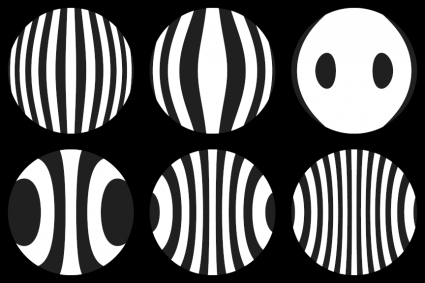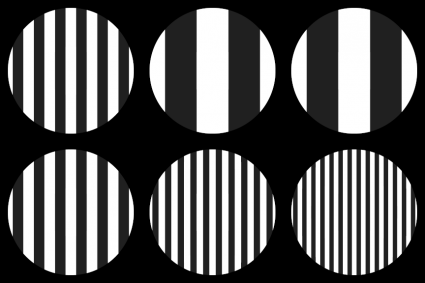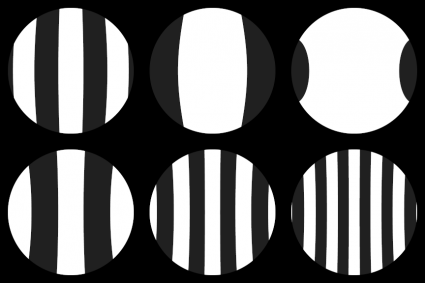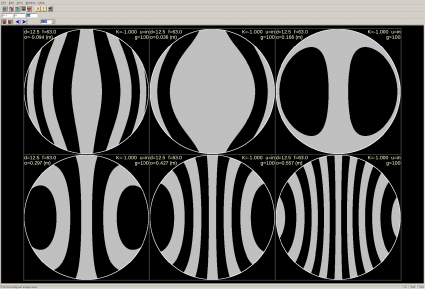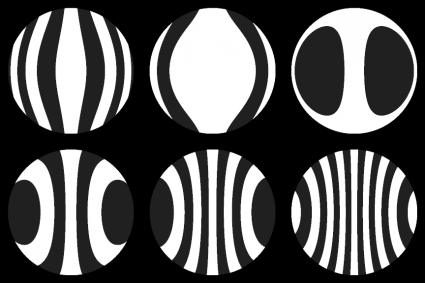I updated my old 2001 Ronchi test code to support arbitrary conic surfaces, and then uploaded the code to github.
My current 12.5″ project is an f/5 paraboloid:
If we were interested in making a spherical mirror, we’d have these as patterns:
Why bother writing this code? I’m actually interested in trying to acquire images using something like the Raspberry Pi camera, and then generating a matching pattern via an image optimization process. Having this code might be useful.
Addendum: Somewhere tucked away I have a mirror I did for a 6″ f/12 mirror. I think that I never really did a proper Foucault test on it, because the focal length is so long, I think I just figured it to as good of a sphere as I could. I thought I’d use my code to see what it would look like with the same offsets using the Ronchi test. Here’s the resulting patterns:
As you can see, there is a small hint of correction, most visible just outside of focus. I’ll try to dig out the mirror for testing this Friday, as well as a 6″ f/5 chinese reflector I have, which I think is just a sphere. With any luck, I’ll also get a new pitch lap made for the 12.5″ mirror.
